The Pros and Cons of Bluetooth in Smart TVs
25 December 2024
Smart TVs have come a long way in recent years, haven’t they? With features like built-in apps, voice assistants, and even the ability to control your vacuum, they’ve almost become the nerve center of our homes. One feature that often flies under the radar, though, is Bluetooth connectivity. It’s not the flashiest feature, but it’s one that can make a big difference in your experience—both for better and worse.
In this article, we’ll dive deep into the pros and cons of Bluetooth in Smart TVs. Whether you’re looking to buy a new TV or just curious about how to make the most of your current one, you’ll find everything you need to know right here. Let’s get started!
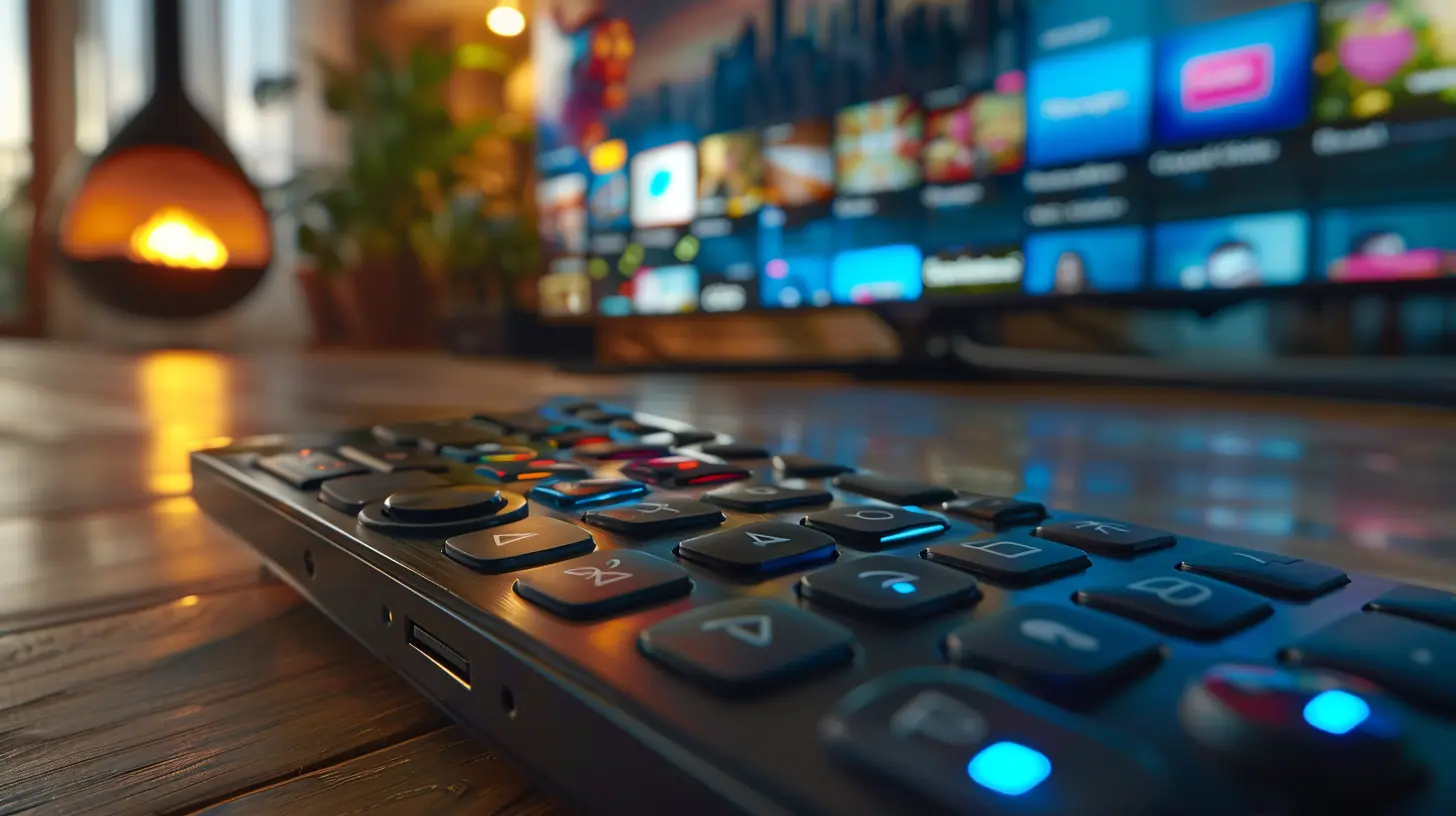
What is Bluetooth in Smart TVs?
Before we jump into the pros and cons, let’s make sure we're on the same page about what Bluetooth is and how it fits into your Smart TV.Bluetooth is a wireless communication technology that allows devices to connect and exchange data over short distances. Think of it like a walkie-talkie for your gadgets—except you’re not talking, your devices are. With Bluetooth, you can connect things like wireless headphones, soundbars, game controllers, and even your smartphone directly to your TV.
Pretty convenient, right? Well, like most things in tech, it’s not all sunshine and rainbows. Let’s break it down.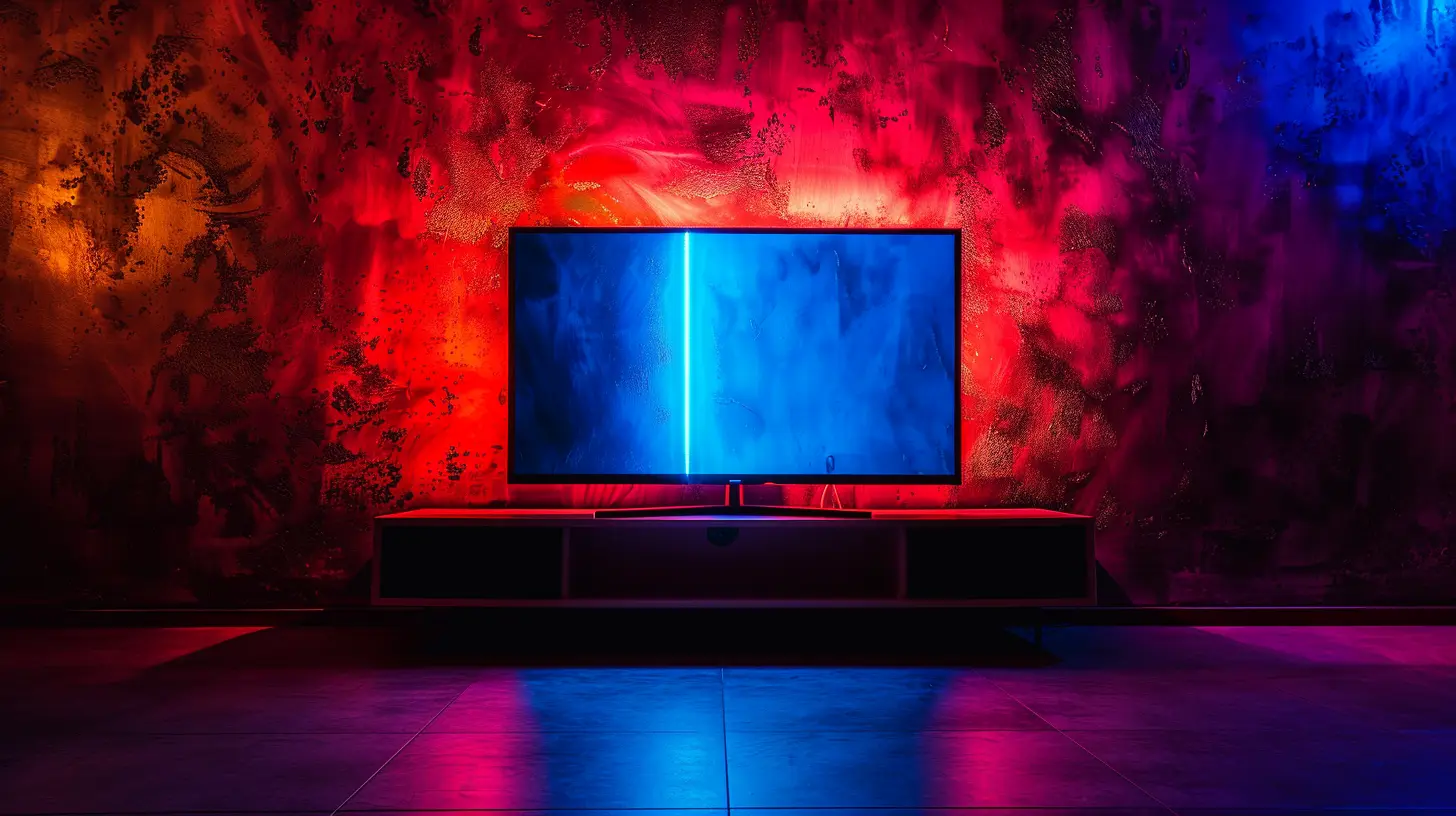
The Pros of Bluetooth in Smart TVs
1. Wireless Freedom: Cut the Cords
One of the biggest perks of having Bluetooth on your Smart TV is the ability to connect wirelessly to other devices. Gone are the days of tripping over cables or trying to untangle that mess behind your entertainment center. Whether you’re pairing a soundbar or wireless headphones, Bluetooth allows for a seamless, cord-free experience.Imagine watching your favorite Netflix series with wireless headphones. No annoying cords to distract you, and you can crank the volume without waking up the whole house. Sounds like a win, doesn’t it?
2. Easy Device Pairing
Want to connect your Bluetooth device to your TV? It’s usually as simple as a few clicks in the settings menu. Most Smart TVs make this process super user-friendly. Just enable Bluetooth on both devices, find your TV on the list, and you’re good to go.This ease of use is particularly handy when you frequently switch between devices, like wireless speakers or game controllers. Plus, once a device is paired, it typically reconnects automatically whenever it's in range.
3. Compatibility with Multiple Devices
Bluetooth on Smart TVs supports a wide range of peripherals. From wireless keyboards to game controllers and even smartphones, it opens up a world of possibilities for enhancing your viewing experience.For example, you can use your smartphone as a remote control or stream your favorite playlists directly to the TV’s sound system. If you’re a gamer, you’ll appreciate the ability to connect a Bluetooth game controller for a more immersive experience without worrying about tripping over cables.
4. Private Listening
Ever wanted to watch TV without disturbing others? Bluetooth makes that possible. Pairing a set of Bluetooth headphones with your Smart TV allows for private listening. Whether you're watching late-night movies or binging shows while someone else sleeps, Bluetooth headphones are a game-changer.And the best part? Most Smart TVs allow you to adjust the audio settings so the sound plays on both the TV speakers and the headphones—perfect for when you want to share the experience with someone else who might have different audio preferences.
5. Improved Sound Quality with Bluetooth Speakers
While the built-in speakers on most Smart TVs are okay, they’re often no match for a dedicated soundbar or speaker system. The good news is that Bluetooth allows you to connect your TV to external speakers without the need for an AV receiver or other complicated setups.This can significantly boost your audio quality, making it feel like you’ve brought the cinema experience straight into your living room.
The Cons of Bluetooth in Smart TVs
1. Limited Range
Bluetooth is great for short distances, but once you start moving too far from your TV, things get a little sketchy. Most Bluetooth devices have a range of around 30 feet, but obstacles like walls, furniture, and even other devices can reduce that distance.If you're thinking about using Bluetooth in a large living room or an open-concept home, you might find that the connection drops or becomes spotty when you move too far from the TV.
2. Audio Lag
One of the most common complaints about Bluetooth in Smart TVs is audio lag—where the sound doesn’t quite sync up with the picture. This can be particularly frustrating when watching fast-paced action scenes or playing video games.While some Bluetooth devices and Smart TVs come with technologies like aptX Low Latency to minimize this issue, it’s not always perfect. So, if you’re the type of person who notices even the slightest delay between audio and video, this could be a deal-breaker.
3. Battery Dependency
Wireless devices are great—until their batteries die. Whether it’s your Bluetooth headphones, remote, or game controller, you’ll need to keep an eye on battery life.While this isn’t a problem exclusive to Bluetooth, it’s still something to consider. After all, there’s nothing more frustrating than having your headphones die in the middle of a movie.
4. Interference from Other Devices
Bluetooth operates on the 2.4 GHz frequency, which is also used by a ton of other devices like Wi-Fi routers, microwaves, and even baby monitors. This can sometimes cause interference, leading to connection drops or degraded sound quality.If you live in a home with a lot of wireless devices, you might encounter more issues than someone with fewer devices competing for that same radio frequency.
5. Limited Multi-Device Support
While Bluetooth in Smart TVs can connect to multiple devices over time, most TVs can only handle one Bluetooth connection at a time. So, if you’re watching TV with Bluetooth headphones and someone else wants to connect a Bluetooth speaker at the same time, you’re out of luck.Some newer models are starting to support simultaneous Bluetooth connections, but it’s not yet a standard feature across all Smart TVs.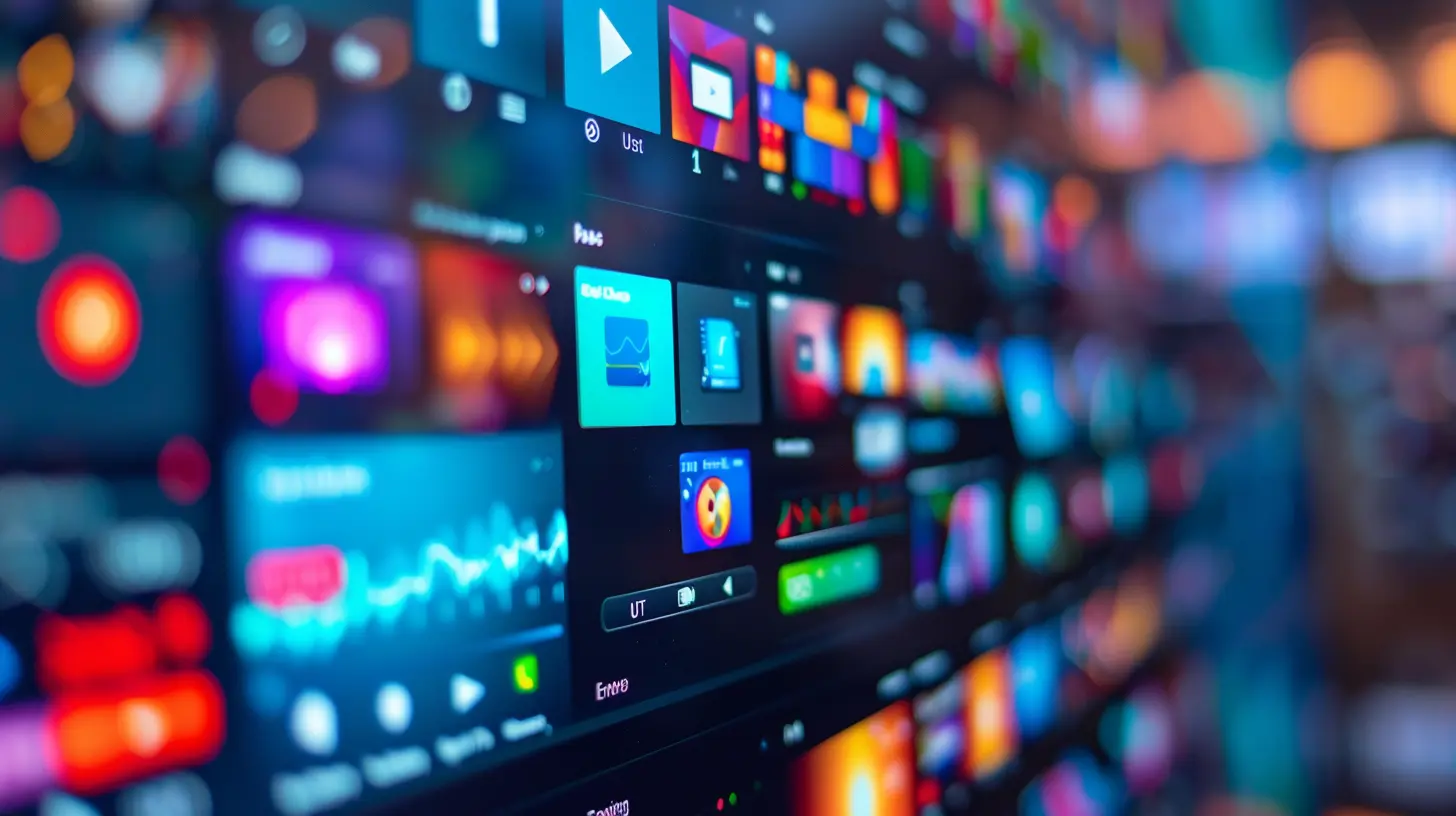
Is Bluetooth in Smart TVs Worth It?
So, should you care about Bluetooth in your Smart TV? Well, that depends on how you plan to use it. If you’re someone who loves wireless freedom and enjoys connecting various devices to your TV, Bluetooth can be a game-changer. The convenience of wireless headphones, speakers, and game controllers can make your viewing experience that much better.On the other hand, if you’re worried about audio lag, interference, or limited range, Bluetooth might not be the most essential feature for you. For many, the pros outweigh the cons, but it’s important to weigh these factors based on your needs and environment.
How to Maximize the Benefits of Bluetooth in Smart TVs
If you’ve decided that Bluetooth is a feature you want to use in your Smart TV, here are a few tips to get the most out of it:1. Use Devices with aptX Low Latency
If you’re worried about audio lag, look for Bluetooth devices that support aptX Low Latency. This codec is specifically designed to reduce the delay between audio and video, making it ideal for watching TV or playing games.2. Keep Your Devices Close
Bluetooth works best when there’s a clear line of sight between your TV and the connected device. Try to keep them within 30 feet of each other, and avoid placing large obstacles (like walls or furniture) in between.3. Minimize Interference
If you’re experiencing connection issues, try moving other wireless devices, like routers or microwaves, further away from your TV. You can also try switching your Wi-Fi to the 5 GHz band if your router supports it, which will free up some space on the 2.4 GHz frequency for your Bluetooth devices.Conclusion
Bluetooth in Smart TVs brings both convenience and potential headaches. From wireless freedom and easy pairing to audio lag and interference, there’s a lot to consider. But if you use the right devices and set up your environment correctly, Bluetooth can significantly enhance your viewing experience.So, is Bluetooth a must-have feature for your next Smart TV? That’s up to you to decide. But now that you know the pros and cons, you’re in a much better position to make an informed decision.
all images in this post were generated using AI tools
Category:
Bluetooth DevicesAuthor:

Reese McQuillan
Discussion
rate this article
24 comments
Luna McCullough
Bluetooth in Smart TVs: It’s great until your remote suddenly thinks it’s a DJ. Pros and cons? More like a love-hate relationship on repeat!
February 13, 2025 at 7:41 PM

Reese McQuillan
Thanks for your comment! Bluetooth definitely has its quirks—convenience and connectivity are great, but unexpected issues can be frustrating. It’s all about finding the right balance!
Ford Snow
Bluetooth: Convenience meets latency—choose wisely!
February 1, 2025 at 5:52 AM

Reese McQuillan
Thank you for your insight! Balancing convenience and latency is crucial when using Bluetooth with smart TVs.
Porter Myers
Bluetooth in smart TVs is like a double-edged sword: on one hand, it offers seamless connectivity and convenience; on the other, it can be a source of lag and compatibility issues. Ultimately, it’s a balancing act between modern convenience and the potential for frustrating tech glitches.
January 26, 2025 at 3:59 AM

Reese McQuillan
Thank you for your insightful comment! It's true that while Bluetooth enhances connectivity, the potential for lag and compatibility issues is a significant trade-off. Balancing these aspects is key for a better user experience.
Zarenith Jenkins
Bluetooth technology undeniably enhances the smart TV experience by enabling seamless connectivity with devices. However, it's crucial to weigh the potential drawbacks, such as lag and compatibility issues. Overall, the benefits outweigh the cons, offering a versatile solution for modern entertainment systems.
January 21, 2025 at 9:53 PM

Reese McQuillan
Thank you for your insightful comment! You're right—while Bluetooth significantly enhances connectivity for smart TVs, it's essential to consider potential drawbacks. Balancing these factors is key to optimizing the viewing experience.
Julianne Phelps
In a world where devices sing, Bluetooth weaves both joy and sting. Ease of use, yet connections may fray— A dance of tech, come what may.
January 17, 2025 at 1:53 PM

Reese McQuillan
Thank you for your poetic insight! You've captured the dual nature of Bluetooth beautifully—its convenience alongside potential connectivity issues perfectly sums up the experience of using smart TVs.
Kira McGivern
Great insights on Bluetooth functionality in smart TVs! Your analysis of the advantages and drawbacks provides valuable information for consumers. Understanding these factors can greatly enhance the viewing experience. Thank you for sharing!
January 14, 2025 at 12:01 PM

Reese McQuillan
Thank you for your kind words! I'm glad you found the insights valuable. Enjoy your viewing experience!
Mira Riley
Bluetooth in smart TVs offers convenience, but beware of lag and connectivity hiccups. A double-edged sword that can enhance or frustrate your viewing experience!
January 11, 2025 at 9:22 PM

Reese McQuillan
Thank you for your insights! You're right—while Bluetooth adds convenience, the potential for lag and connectivity issues is definitely something users should consider. Balance is key!
Lexi Gray
Bluetooth technology in smart TVs offers convenience and flexibility for connecting devices wirelessly. However, potential drawbacks include compatibility issues, limited range, and possible latency during audio streaming. Weighing these pros and cons is essential for informed purchasing decisions in today’s smart TV market.
January 9, 2025 at 11:26 AM

Reese McQuillan
Thank you for your insightful comment! You’ve captured the essential trade-offs of Bluetooth in smart TVs well. Balancing convenience with potential drawbacks is crucial for buyers.
Xavier Mitchell
This article offers a balanced view of Bluetooth in smart TVs, highlighting its convenience for device connectivity while acknowledging potential drawbacks like latency and compatibility issues. It's essential for consumers to weigh these factors based on their specific needs and usage scenarios.
January 6, 2025 at 7:23 PM

Reese McQuillan
Thank you for your thoughtful comment! I'm glad you found the article balanced and helpful in considering the pros and cons of Bluetooth in smart TVs.
Rosanna Good
This article presents a balanced view on Bluetooth in smart TVs, highlighting both its convenience and potential connectivity issues effectively.
January 3, 2025 at 3:29 AM

Reese McQuillan
Thank you for your feedback! I'm glad you found the article balanced and informative.
Ainsley Sharp
Great insights on Bluetooth in smart TVs! It’s crucial to weigh both the convenience and potential drawbacks, as technology should enhance our experiences while ensuring connectivity and usability. Thank you for sharing!
December 31, 2024 at 3:29 AM

Reese McQuillan
Thank you for your thoughtful comment! I completely agree that balancing convenience with potential drawbacks is essential for enhancing our viewing experience.
Arlo Malone
Embrace technology's potential—balance pros and cons wisely!
December 30, 2024 at 7:58 PM

Reese McQuillan
Thank you! Balancing technology's benefits and drawbacks is crucial, especially with Bluetooth in smart TVs. Your insight is appreciated!
Reina Green
Great insights! Bluetooth enhances convenience but raises concerns.
December 30, 2024 at 12:35 PM

Reese McQuillan
Thank you! I'm glad you found the insights helpful. Balancing convenience with security is key in using Bluetooth with smart TVs.
Carina McElveen
Bluetooth enhances connectivity and convenience in smart TVs, but potential latency issues and device compatibility can hinder the overall user experience.
December 30, 2024 at 5:33 AM

Reese McQuillan
Thank you for your insight! You're right—while Bluetooth offers great convenience, addressing latency and compatibility issues is essential for improving the overall user experience.
Denise Dorsey
Great insights! Bluetooth offers convenience, but varies in reliability.
December 29, 2024 at 7:49 PM

Reese McQuillan
Thank you! You're right—while Bluetooth enhances convenience, its reliability can indeed fluctuate.
Logan McCracken
Great article! 🎉 Bluetooth technology makes connecting devices so much easier for a seamless viewing experience! Looking forward to more innovations in smart TVs that enhance our entertainment journey. 🚀📺
December 29, 2024 at 3:36 AM

Reese McQuillan
Thank you for your kind words! I'm glad you enjoyed the article. Exciting innovations are definitely on the horizon for smart TVs! 🚀
Runevale McMichael
Great article! Bluetooth in smart TVs offers convenience for streaming and device connectivity but can lead to potential lag and security concerns. Balancing these pros and cons is essential for users.
December 28, 2024 at 7:36 PM

Reese McQuillan
Thank you for your insightful comment! Balancing convenience with potential drawbacks is indeed crucial for users considering Bluetooth in smart TVs.
Judith McCaffrey
Bluetooth in TVs: convenience with a dash of quirks!
December 27, 2024 at 8:11 PM

Reese McQuillan
Thanks for your insight! Bluetooth definitely offers great convenience, but its quirks can be frustrating for users at times. Balancing these aspects is key!
Calaris Hubbard
Ah, the Bluetooth dilemma!
December 27, 2024 at 3:46 AM

Reese McQuillan
Absolutely! Bluetooth offers convenience but can also lead to connectivity issues. It's a trade-off to consider.
Runevale Summers
Great insights on Bluetooth in smart TVs! Balance of convenience and limitations is crucial to consider.
December 26, 2024 at 12:04 PM

Reese McQuillan
Thank you! I'm glad you found the insights helpful. Balancing convenience with limitations is indeed key when it comes to Bluetooth in smart TVs.
Dulce Pacheco
Great overview! Bluetooth enhances connectivity but may face compatibility and audio latency issues.
December 26, 2024 at 5:57 AM

Reese McQuillan
Thank you for your feedback! You're right—while Bluetooth offers great connectivity, compatibility and audio latency are important considerations for users.
Zephyrian Hayes
Bluetooth enhances connectivity but can introduce latency and security concerns.
December 25, 2024 at 7:59 PM

Reese McQuillan
While Bluetooth does improve connectivity, it’s important to weigh these benefits against potential latency and security risks.
Lanae Kirkland
Great overview! While Bluetooth offers convenience for connectivity, it’s crucial to consider potential audio lag and device compatibility issues. A balanced approach ensures the best viewing experience.
December 25, 2024 at 11:46 AM

Reese McQuillan
Thank you for your insightful comment! You're absolutely right—balancing convenience with potential audio lag and compatibility is key to maximizing the viewing experience with Bluetooth-enabled Smart TVs.
Allegra Curry
Bluetooth in smart TVs: the magical bridge to wireless freedom! 🎉 Just remember, while connecting is a breeze, no one wants to be that person who can't find the remote—again! 😂 Happy streaming!
December 25, 2024 at 3:20 AM

Reese McQuillan
Thanks for your comment! Bluetooth certainly enhances convenience, but keeping track of that remote is essential for a seamless streaming experience! Happy viewing! 🎥✨
MORE POSTS
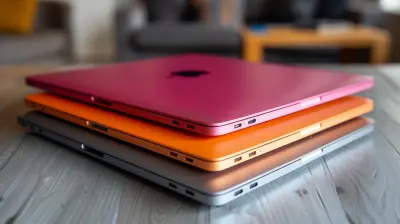
Battery Life Showdown: Which Laptop Lasts the Longest?

Exploring the Role of 5G in Autonomous Vehicles

How Cloud Computing is Reshaping Business Operations

The Ethics of Data Security in the Age of Surveillance

Tools for Seamless 4K Video Editing

From Legacy Systems to the Cloud: Modernizing IT Infrastructure

The Impact of AI-Powered Chatbots on Customer Service
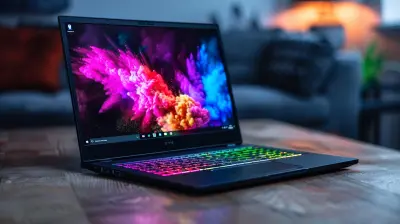
Exploring Laptops with Intel Evo Certification: What’s the Hype?
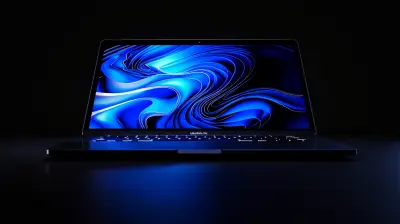
Exploring the World of 2-in-1 Laptops: Flexibility and Functionality Combined

Quantum Cloud Platforms: What You Need to Know

Quantum Computing for Environmental Modeling: Predicting the Unpredictable

How to Optimize Bluetooth Connectivity in Crowded Areas
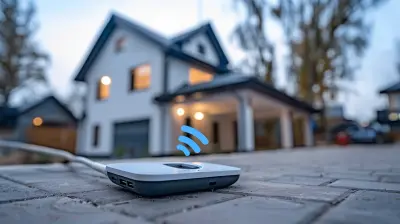
What Does 5G Mean for the Future of Smart Homes?

How AI is Changing Photography with Computational Imaging